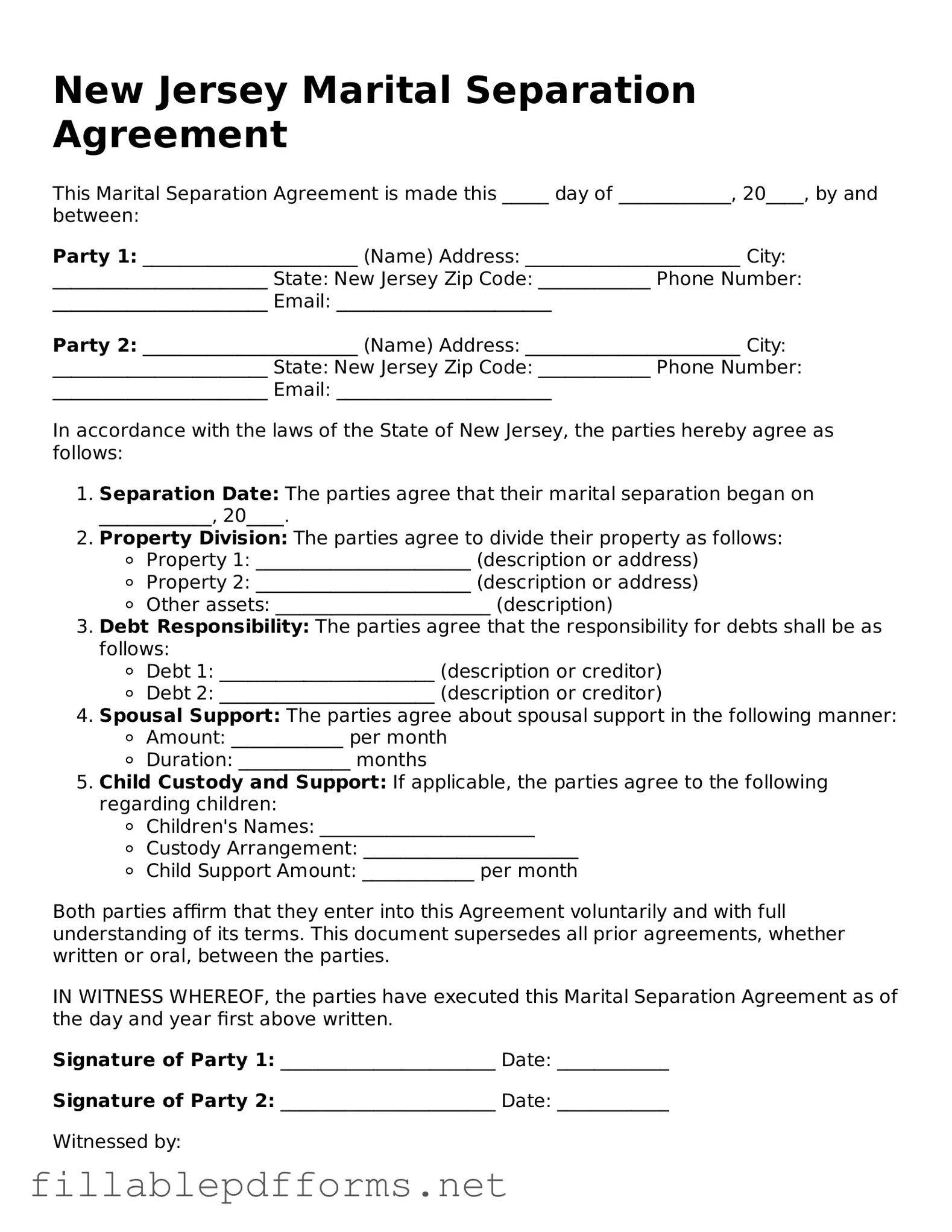Attorney-Verified Marital Separation Agreement Form for New Jersey State
A New Jersey Marital Separation Agreement is a legal document that outlines the terms and conditions under which a couple agrees to live separately while remaining legally married. This form addresses various aspects of the couple's life, including asset division, child custody, and support obligations. Understanding this agreement is crucial for individuals navigating the complexities of separation in New Jersey.
Launch Editor Here

Attorney-Verified Marital Separation Agreement Form for New Jersey State
Launch Editor Here

Launch Editor Here
or
▼ Marital Separation Agreement PDF
Almost there — finish the form
Complete Marital Separation Agreement online fast — no printing, no scanning.